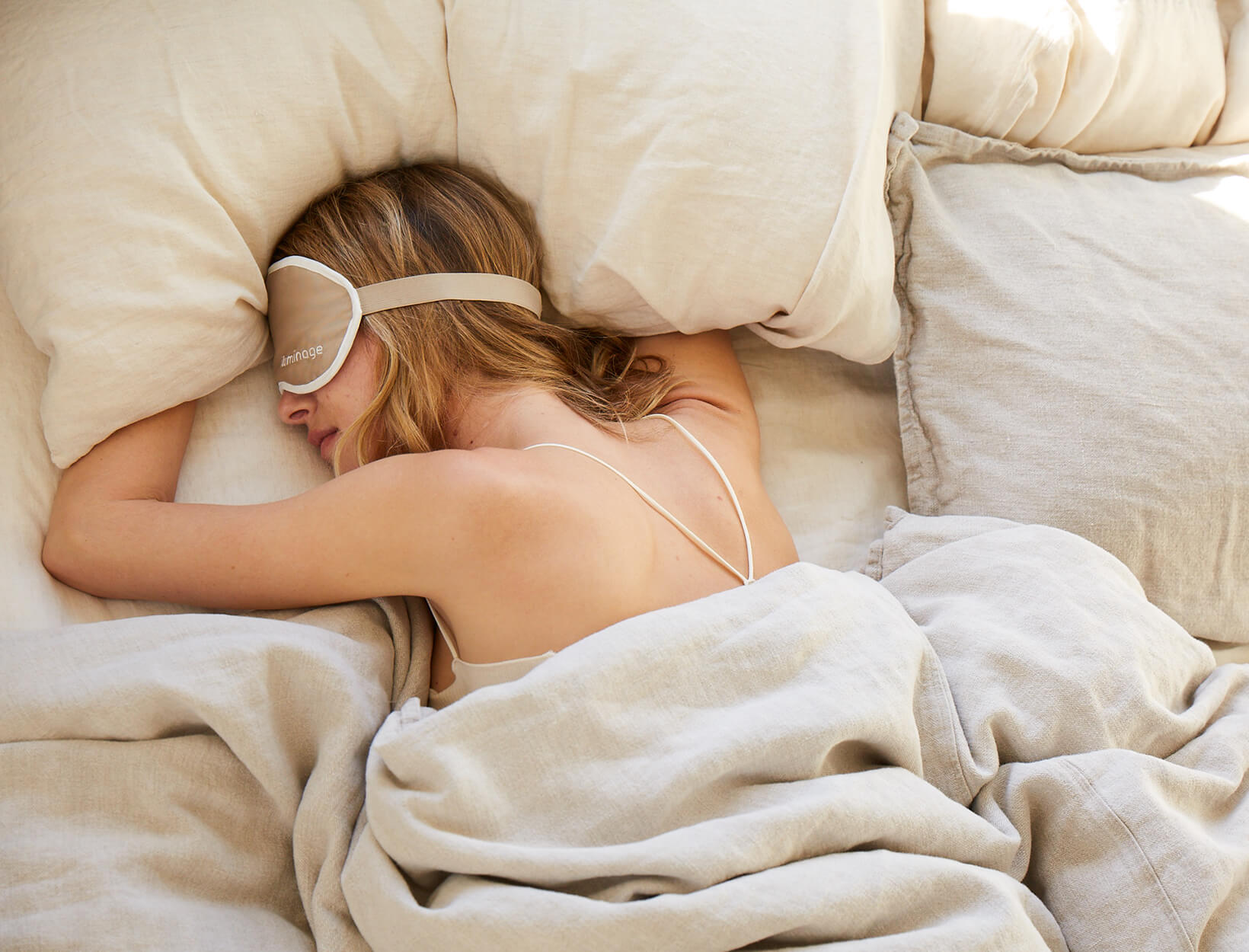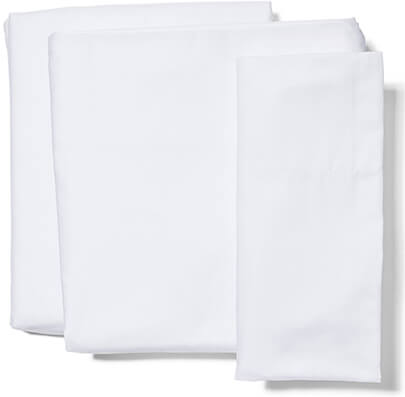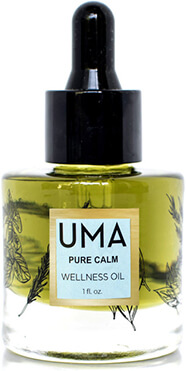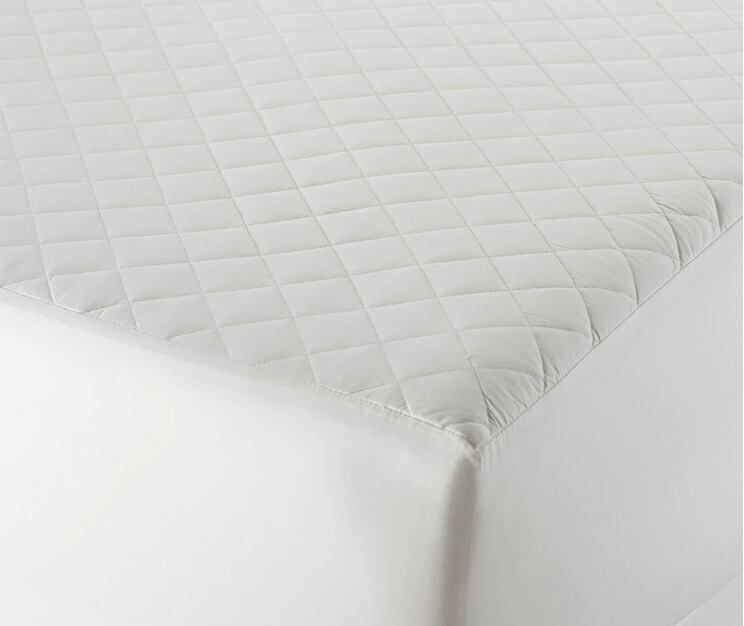
How to Sleep Better
Sleep is something we discuss a lot here at goop–and we’re not alone: In the last few years, researchers, doctors, and journalists have learned more than ever before about the role it plays in our lives, from the detriments of getting too little to discovering the molecular mechanisms that help regulate our sleep patterns. Lack of sleep has become such an issue that the CDC now considers it a public health problem. It’s one of the most essential elements to living, yet getting enough of it continues to be elusive: more than a third of Americans lack the daily minimum hours of quality sleep needed to function optimally.
To shed more light on this issue, we looked at some of the most common sleep-related questions that plague goop staffers, our family members, and friends. And we corralled the insights of three experts in the field—Param Dedhia, M.D., Matthew Walker, PhD., and Rafael Pelayo, M.D.—to create this guide to a better night’s rest. (Plus, we included our picks for some sleep essentials, from an organic mattress to essential oils.)
An important note: the two paradigms of optimal sleep are quality and quantity, says Dedhia, Director of Sleep Medicine at Canyon Ranch in Tucson. You want to get the correct amount each night, which the National Sleep Foundation recommends to be seven to nine hours for adults ages twenty-six to sixty-four, and it needs to be restorative–continuous and not fragmented–for you to feel your best during the day.
Trouble Falling Asleep
According to Dedhia, our ability to fall asleep is interconnected with what we do out of bed. “How we live our daytime can influence our nighttime sleep–and vice versa. Therefore, it’s essential to move during the day to burn off energy.” It’s also important to allow time to transition from day to night, which gives the body the opportunity to taper into rest mode. “Most of us go from these busy daytimes and drop right into bed, and that is not easy, nor is it helpful.” To help induce sleep, he recommends the following:
Start a ritual: Take a warm shower or bath. “When you get out of a warm bath, the air temperature around you will cool your core, which sends a chemical reflex to the brain that induces sleep.”
Create the ideal environment: “You want to honor your five senses during bedtime.” Make the bedroom as dark as possible and avoid any blue light (i.e. TVs and phones). For many, extra touches—essential oils, herbal tea, white noise, great bedding—help.
Keep the room cool: “It’s not easy to prescribe an actual number; a cool temperature should be individualized for each person.” Ultimately, your body temperature needs to drop to induce sleep.
Clear your mind: “If something is bothering you, create an opportunity to help clear that, whether it’s journaling or meditating.”
Eat light: Consider a smaller, whole foods-based dinner. “Typically, fattier meals are harder to digest.” Also, avoid caffeine and alcoholic drinks later in the day.
Be consistent: Keep a steady bed and wakeup time. This honors the internal bodily mechanisms that regulate sleep–the Circadian Rhythm and Sleep-Wake Homeostasis–and helps to establish healthy habits.
Go easy on yourself: Don’t expect to fall asleep immediately. According to Rafael Pelayo, Clinical Professor of Psychiatry and Behavioral Sciences at Stanford Center for Sleep Sciences and Medicine, you should ideally fall asleep within about 15 minutes of getting into bed. “So, it’s okay to lie there for a bit,” he says.
Waking Up During the Night
The reasons for waking up and staying up during the night vary from person to person, says Matthew Walker, founder and director of the Center for Human Sleep Science at UC Berkeley. “For young and middle-aged adults, it’s usually anxiety. For older adults, it can also include physical body pain and more frequent trips to the bathroom.” Here, his tips for helping to ease yourself back to sleep:
Leave the room: “If you lay awake in the night feeling restless, don’t stay in bed awake. This trains the brain that your bed is not a place for sleeping.”
Do something calming: Read a book under a soft, dim light, avoiding any stimulating TV, phone, or computer screens. When sleepiness returns, go back to bed.
Meditate: “Some studies suggest it improves sleep quality.”
A Better Mattress
“Some mattresses contain a petroleum-based polyurethane foam and flame retardants that release volatile organic compounds,” says Tasha Stoiber, EWG senior scientist. “Since a mattress is a big purchase, and you spend a lot of time in bed, it’s important to make a good, well-informed choice.” Here, Stoiber’s tips for choosing a better mattress. (You can find more tips on EWG’s Healthy Living Home Guide.)
Look for natural materials: Choose a mattress that include at least 95 percent organic content, such as cotton, wool, or natural latex. Also, opt for Global Organic Textile Standard. “A GOTS-certified mattress means all the foams and fibers will be at least 95 percent organic and it won’t contain any nasty VOCs.”
Avoid fire retardants: Chlorinated Tris, a chemical flame retardant commonly found in mattresses, sleeping mats, pillows, and futons, is a known neurotoxin and carcinogen.
Wash and cover: “When you’re tossing and turning in bed, you can stir up a lot of dust in your mattress that can potentially cause allergy issues. It’s important to frequently launder your bedding, and vacuum your mattress once in a while.” Also, use a mattress cover, preferably one made of tightly-woven, organic cotton, to avoid dust mites.
Steer clear of additives: Mattresses and toppers treated with antimicrobial solutions and added scents can contain hidden ingredients.
Waking Up Tired
We’re all familiar with that dazed, sleepy feeling. The stage of sleep from which you’ve awoken can have an impact on whether or not you wake up feeling this way, explains Dedhia. “If you’ve woken during a deep dream sleep, you may feel groggy.” To help feel more refreshed, he recommends the following:
Trust in the process: “Give yourself permission to wake up, even if it takes you a little long some mornings. Allow it to naturally happen.”
Get sunshine: Natural light sends the message to your internal clock it’s time to start the day. “If you live in the northern hemisphere with less light, a light box is a good choice.”
If you consistently wake up feeling groggy–or even exhausted–it could be an issue with the quality of your sleep, says Pelayo. “If you tell me you feel tired no matter how much sleep you’re getting, clearly it’s not the quantity. An analogy is that you could be both overweight and malnourished.” To get to the root of the issue, he recommends seeing a sleep specialist for an evaluation. “It could be hormonal, a sleep-disorder, or another issue.”
For many goop staffers, feeling tapped out signifies a time for a detox to re-evaluate what their eating and break any caffeine addictions.
Sleep Aids

Made with 100-percent natural Dunlop latex, natural wool, and organic cotton, this GOTS-certified, flame retardant-free mattress checks all the boxes for a healthier sleep with no off-gassing. The natural and organic materials also wick away moisture and allow for better airflow than polyurethane-based foams, making for a cooler night’s sleep.

Made with natural latex rubber shreds (cut from the same material used in the mattress) and organic cotton, this luxurious pillow provides optimal support for all sleeping positions.

Supima Cotton Sheet Set goop, $498
Silky-soft and long-lasting, this essential bedding set is woven from Supima cotton that is GOTS-certified, which means it’s made of cotton grown using sustainable methods free of toxic pesticides.

Pure Calm Oil goop, $85
Our beauty editor swears by this blend, made with calming essential oils—sandalwood, vetiver, Roman chamomile, jasmine, and lavender.

Royal Olga Pajamas goop, $295
Our day-to-night pajamas in classic white
cotton-poplin with royal-purple piping.

Organic Mattress Pad goop, $248
This GOTS-certified quilted percale covering can prolong the lifespan of your mattress and help keep dust mites at bay.
The views expressed in this article intend to highlight alternative studies and induce conversation. They are the views of the author and do not necessarily represent the views of goop, and are for informational purposes only, even if and to the extent that this article features the advice of physicians and medical practitioners. This article is not, nor is it intended to be, a substitute for professional medical advice, diagnosis, or treatment, and should never be relied upon for specific medical advice.
